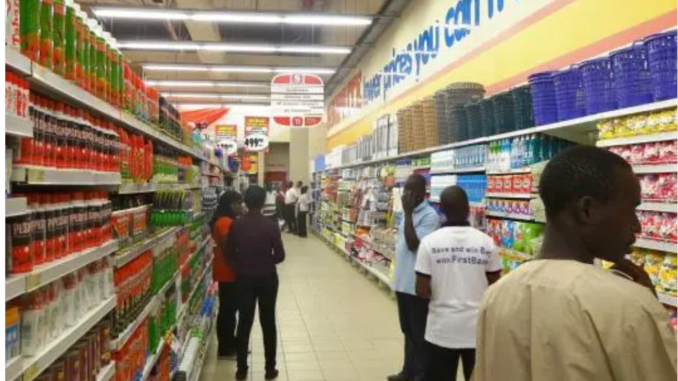
The increasing weight of unfavourable economic condition owing to weakening purchasing power has moved Nigerians into a state of hopelessness over the direction of the economy.
Also, the widespread cut in spending by Nigerians in adjustment to the unfavourable economic conditions has triggered a decline in value of electronic payment transactions.
Neighbor recounts how woman abused 12 years old niece, burnt her with hot knife and forced…..0.00 / 0.00
Volume and value of e-payment transactions had sustained upward trend over the years since the launch of the cashless programme by the Central Bank of Nigeria, CBN.
But Financial Vanguard’s findings showed that the value of electronic transactions fell month-on-month, MoM, by 5.7 per cent in June, representing the second MoM decline in three months.
This trend, according to analysts including members of the Monetary Policy Committee, MPC, of the CBN is due to lower consumer spending which has also constrained firms from expanding production.
Financial Vanguard findings from the NIBBS data on electronic transactions showed that total value of e-payment transactions fell 5.7 percent, MoM to N87.45 trillion in June 2024 from N92.8 trillion in May.
The decline was driven by declines in NIBSS Instant Payment, NIP, transaction and cheque transactions.
Analysis showed that the value of NIP transactions fell 9.0 percent, MoM, to N79.58 trillion in June from N87.48 trillion in May.
Similarly, the value of cheque transactions fell by 27 per cent MoM to N226 billion in June from N308.72 billion in May.
However, transactions via PoS and Nigeria Electronic Funds Transfer, NEFT, grew by 7.4 per cent and 62 per cent, MoM to N930.76 billion and N6.7 trillion respectively in June from N868.56 billion and N4.14 trillion in May.
Further details showed that the decline in e-payment transactions in June is the second in three months, after a similar but greater decline in April, when total value of transactions slumped by 23.1 per cent, MoM to N79.847 trillion from N88.04 trillion in March. The decline in April was driven by MoM declines of 9.3 per cent in NIP, 1.3 per cent in PoS and 9.1 per cent in NEFT during the month.
According to Mr. Bismarck Rewane, Managing Director/Chief Executive, Financial Derivatives Company, “The decline was due to lower consumer spending as inflation continues to bite.”
Reflecting the the inflationary trend behind the lower consumer spending driving the decline in e-payment transactions, data from the National Bureau of Statistics, NBS, showed that the Cost of a Healthy Diet rose by 32 percent to N1,041 per adult per day in May 2024 from N786 in December 2023.
“The Cost of a Healthy Diet (CoHD) is the least expensive combination of locally available items that meets globally consistent food-based dietary guidelines,” the NBS explained.
With little or no increase in income to commensurate fr the increase in price of goods and services, most Nigerians had to suspend or reduce spending on non essentials so as to have enough money to meet basic food needs.
This challenge coupled with little or no sign of respite from steady increase in prices had made most Nigerians pessimistic about the economy, a development which discourages consumer spending.
A member of the MPC of CBN, Bandele Amoo, who confirmed this in his personal statement at the June 2024 meeting of the Committee, said: “Consumers, however, expressed pessimism in their overall outlook on economic conditions in Q1:2024 and Q2:2024. The negative outlook was attributed to unfavourable economic conditions; worsening family situation; and declining income purchasing power.”
Another MPC member in his personal statement at the June 2024 meeting said: “Press coverage showed that the current state of play is wreaking havoc on consumers, particularly those on the lower end of the income scale who are more acutely feeling the pain from high inflation. This segment of our society is facing a myriad of challenges, including food and fuel, and they are financially strapped.”
Firms’ output growth constrained
Meanwhile, the reduction in consumer spending is also affecting firms’ ability to expand production of goods and services (output).
According to the Purchasing Managers Index, PMI survey report of Stanbic IBTC, private sector firms recorded the lowest expansion in output in seven months triggered by decline in demand for goods and services caused by rise in prices.
“June data signaled a broad stagnation of the Nigerian private sector as subdued demand and intense price pressures led to slowdowns in growth of output and new orders.
In turn, employment rose only fractionally. There were signs of inflationary pressures picking up, with purchase prices, staff costs and selling charges all increasing more quickly than in May,” the report said:
Commenting on the report, Muyiwa Oni, Head of Equity Research, West Africa at Stanbic IBTC Bank said: “The Stanbic IBTC headline PMI dropped to a seven-month low of 50.1 index points in June from 52.1 index points in May due to moderation in domestic demand amid the intensification of price pressures, leading to slowdowns in growth of output and new orders.
“Notably, new orders recorded a near-stagnation as new business increased only marginally and at the slowest pace in the current seven-month sequence of expansion. Besides, financial challenges at customers reportedly limited the ability of firms to fully benefit from any improvement in underlying demand. In line with the picture for new orders, output rose at a slower pace during June, settling at its weakest level in four months.
“Meanwhile, the rate of inflation in overall input prices remained elevated in June, ticking higher for the second month running to the strongest since March. Close to 60% of respondents posted a rise in input costs during the month. In line with the trend in input costs, companies increased their own selling prices sharply again in June. The pace of inflation quickened slightly from that seen in May.”
END

Be the first to comment